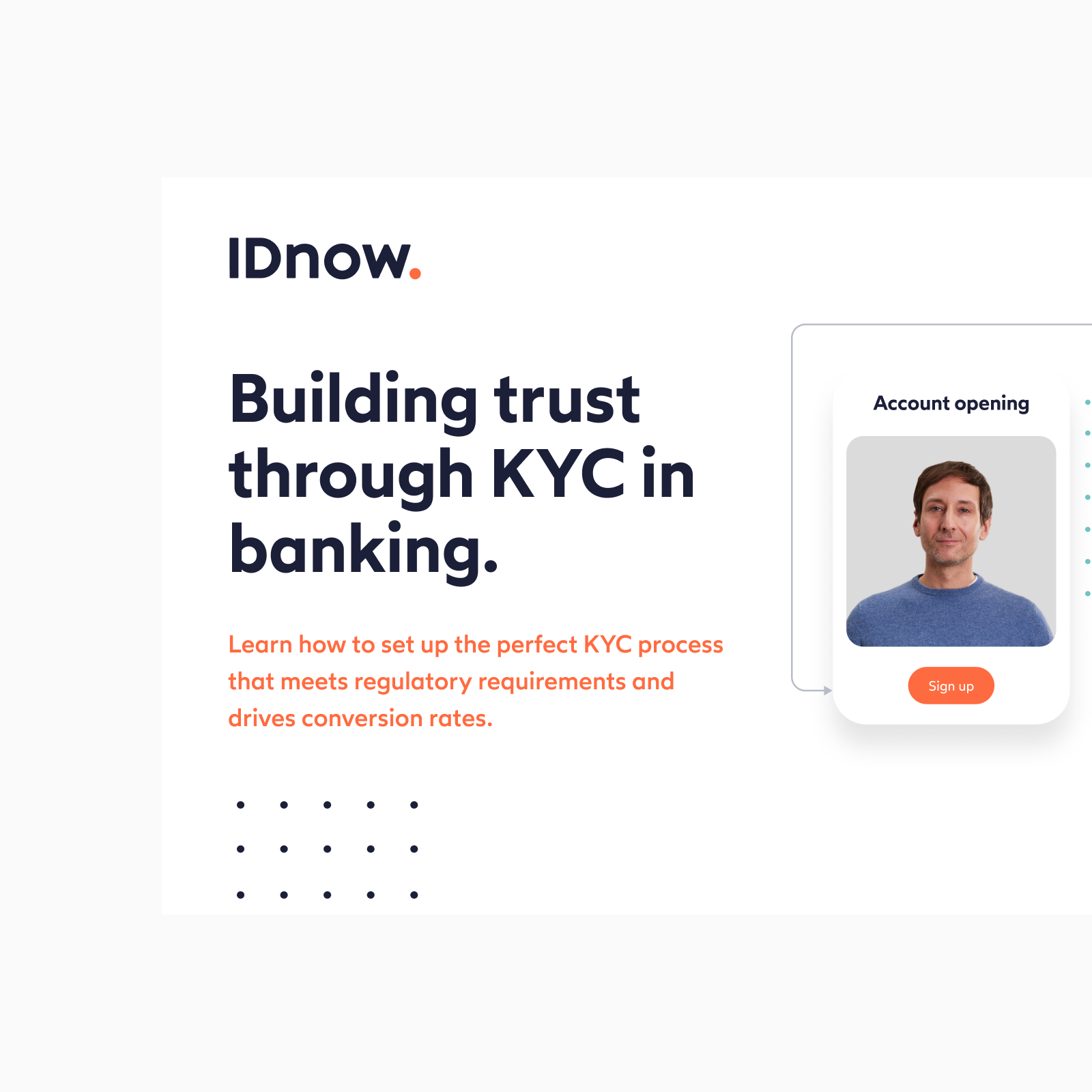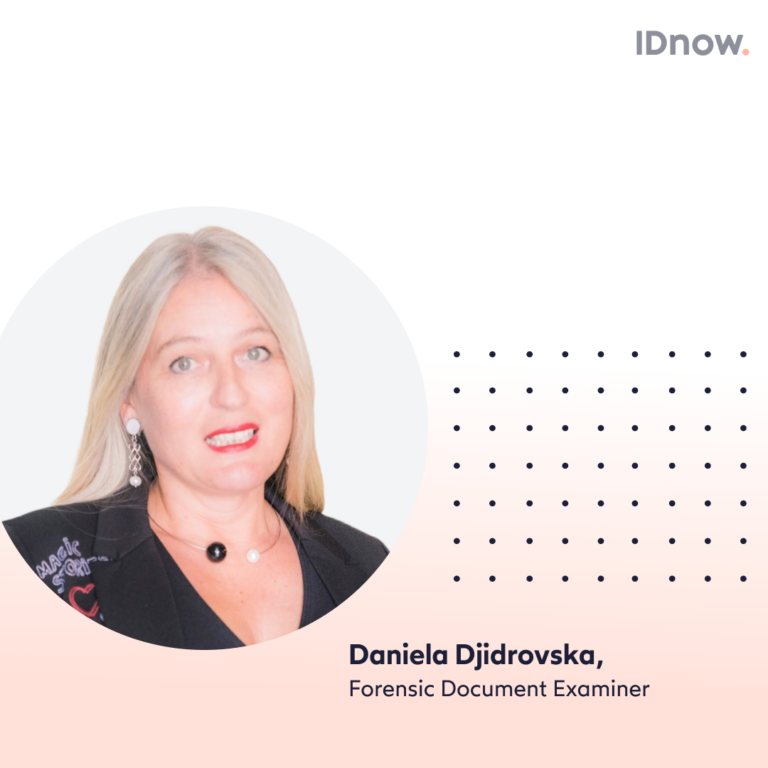We sat down with our Sales Director, Olivier Artus, to discuss the PVID framework, its impact on the financial market, its evolution over time and its implementation at IDnow.
What will the PVID certification mean for the financial market in practice?
The PVID certification offers a clear and precise reference for all remote identity verification players on the French market. It allows financial market players to integrate a certified solution of substantial level into their process, which will make the entry into a relationship consistent with a face-to-face equivalent. This is the first time that the French authorities that regulate the financial services market have proposed a solution, integrating biometrics, that is 100% compliant with the Monetary and Financial Code (CMF), without having to add any additional measures other than ID and biometrics.
What will the PVID standard add to the remote identity verification process?
The real difference is the instant compliance of the entry into the relationship. Until now, the use of biometrics in a transaction, although secure, had no substantial value, i.e. was not recognized or certified by an authority. Thanks to PVID, we finally have a solution that offers a face-to-face equivalent, in line with the requirements of the regulators.
In addition, the PVID standard makes it possible to offer online access to unbanked populations. Thanks to the certification, it is no longer necessary to add additional measures such as the first payment by bank transfer, for example, which is less inclusive and often a source of failure or even cost. The use of biometrics is now recognized as a full complementary measure.
The rules imposed by traditional financial institutions for opening an account have made the entry into a relationship a real challenge. If we had had a PVID standard at the time of the health crisis, for example, traditional banks would have been able to do even more business securely and therefore more transactions.
Will all players in the financial sector be affected by this certification? In particular the crypto players, the fintech world… will everyone be on the same page?
All players subject to ACPR and AMF regulations will now be able to include a biometric entry path in their solution: credit institutions, personal and capital insurance, fintech, payment institutions, etc. Some other sectors will not be immediately affected by PVID, such as property and casualty insurance, which does not have a KYC obligation as it is not considered a risk area.
Other sectors of the financial sphere such as issuers of prepaid products and so-called credit FinTechs will obviously be interested in the development of such solutions to enhance trust when entering into a remote relationship.
As far as crypto is concerned, the AMF in France has defined the PSAN status (Service Provider on Digital Assets) in order to better supervise the market players and requires for this the implementation of a complete KYC path, including identity verification. This is equivalent to the PVID process for banks. More globally and in order to harmonize the European crypto regulatory landscape, it is the MiCA (Markets in Crypto Assets) regulation that will enter soon, still with the objective of protecting investors and preserving financial stability.
The first beneficiaries of the PVID standard will therefore be banks, neo-banks, payment institutions and credit players. What is important to remember is that players who are not directly concerned by PVID will be able to accelerate their insertion into the market and strengthen confidence in the construction of a customer relationship, thanks to this type of standard.
What will be the benefits of a PVID certification for financial market participants?
The last two years have seen a significant increase in cases of online identity fraud. In our latest Identity Fraud Trend Report we found a 144% increase in the use of fake identity documents between November and December 2021. PVID certification strengthens traditional remote identity verification solutions, and improves the fight against identity theft through the use of biometrics.
Beyond the fight against fraud, the challenge of the PVID standard is to fight against financial crime during remote identification, and therefore money laundering. This involves identifying the origin of funds and the destination of funds. The PVID process completes the financial institution’s AML/CFT system.
Olivier Artus, Senior Sales Director Global Financial Services
Do you think that the arrival of PVID will increase confidence in the market?
Of course. The primary objective of PVID is to strengthen the trust between the financial institution and the customer when subscribing to a service or opening an account.
The end customer will go through a process that is based on a public repository published by a recognized government agency, which represents an additional element of trust for him. For its part, the financial institution will rely on an expert company that provides it with a solution certified by the ANSSI to a substantial level with regard to the European eIDAS regulation, in order to verify the authenticity of the identity of the customers it deals with.
In addition, the PVID standard adds control points to identity documents. The dynamic capture of the document allows the detection of security features that cannot be verified in static mode. Then, a manual analysis completes the automated verification of the captures. It is carried out by operators trained in fraud who check, correct and give a final verdict on the user data in less than 5 minutes.
What, in your opinion, are the challenges to encourage the adoption of this new type of standard?
The first challenge is the user experience, which must be simple, intuitive, fast and perfectly integrated into our customers’ acquisition flow. The use of a mobile phone in the context of a long-distance relationship can be a barrier for less technophile users. For this reason, we offer an omnichannel pathway (on smartphones, tablets and computers). Our PVID certified pathway offers an intuitive, step-by-step guided experience to simplify the identity verification process for the user, for high conversion rates.
Furthermore, citizens are becoming increasingly vigilant about the handling of their personal data. Here again, our solutions are compliant with the GDPR (General Data Protection Regulation). Our solutions and all processed data are securely hosted in Europe and we have our own infrastructure. Thus, we guarantee the complete confidentiality and protection of all shared data and analyses performed.
In addition to the user aspect, we also have a duty to support financial institutions in learning how to use the solutions and optimize their processes.
In terms of geography, who will be affected by PVID? And in your opinion, will this certification evolve?
From a technical point of view, the solution will initially apply to the entire French market under the aegis of the ACPR. As France is a recognized financial center, it is likely that the PVID process could also be recognized as compliant in other EU countries in the context of remote entry.
It can be assumed that this regulation will continue to exist and that it may evolve from a functional point of view. Optional modules may be added to the solution to suit different countries and local regulators.
Olivier Artus, Senior Sales Director Global Financial Services
In the context of the emergence of digital identity and identity wallets, our near future will be to rely on a PVID certified solution for the creation of a recognized digital identity of substantial level.
What is the status of certification at IDnow?
IDnow has obtained the ANSSI Security Visa for PVID certification of its identity verification services! Symbolizing the culmination of months of collaboration and involvement by all our teams, this certification demonstrates our determination to offer our customers secure solutions that comply with current French regulations.
KYC in banking

By

Mallaury Marie
Content Manager at IDnow
Connect with Mallaury on LinkedIn



